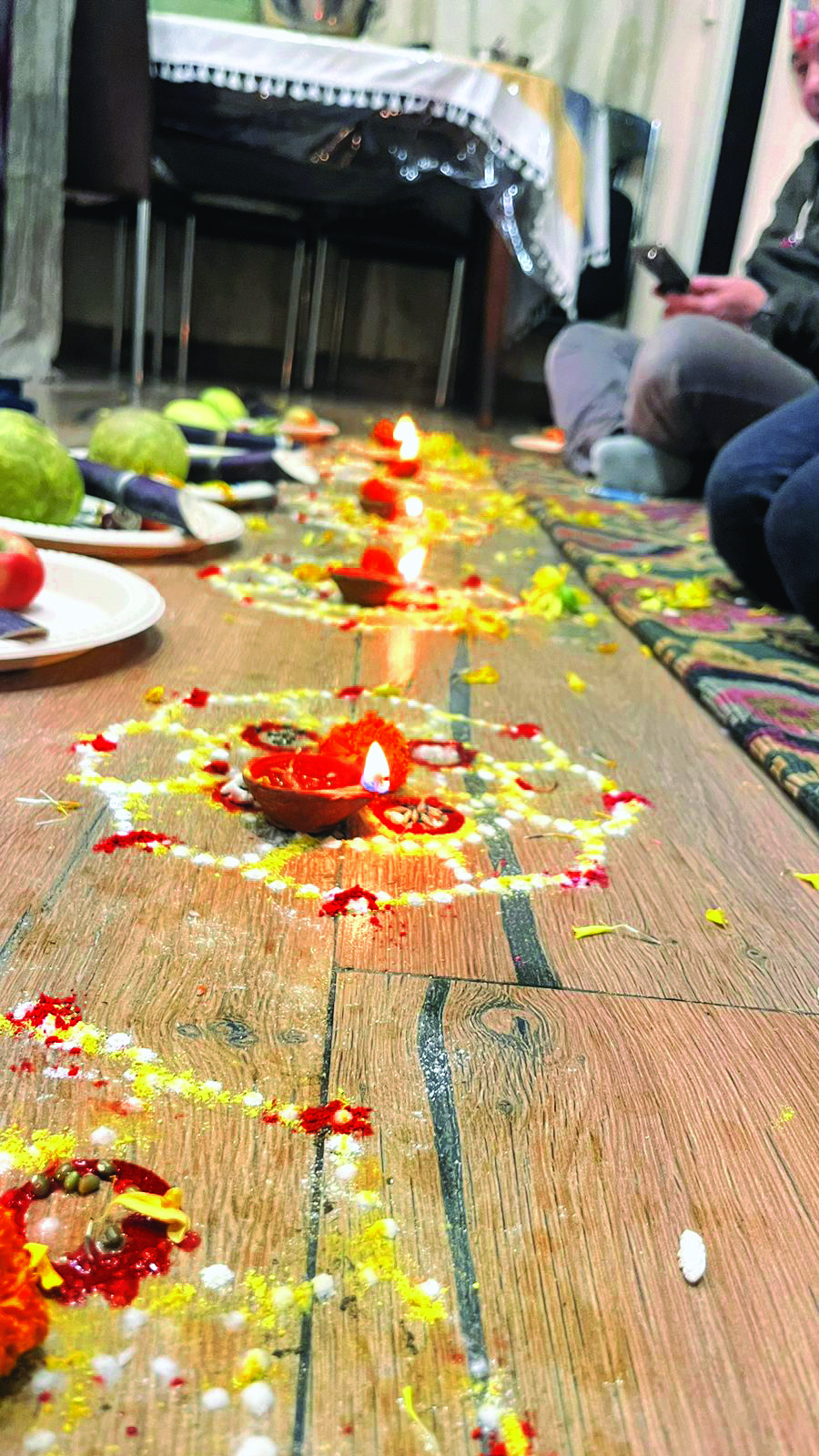Bhai Tika celebrations in Darj bring vibrant Newari traditions to life

Darjeeling: The five-day Tihar (Diwali) festivities in the hills of Darjeeling reached their grand finale on Sunday with the observance of Bhai Tika, a cherished tradition that celebrates the bond between brothers and sisters. Though similar to Bhai Phota in the plains, Bhai Tika in the hills, particularly among the Newari Community, has a unique and deeply ceremonial character that adds a local flavour to the festival.
In Newari culture, Bhai Tika is an elaborate ritual where sisters set up colourful mandaps — dedicated spaces — each decorated with vibrant rangolis and concentric patterns of food grains. These mandaps are specifically prepared for each brother, embodying the sisters’ prayers for their siblings’ longevity and prosperity. The intricate designs are framed by garlands of marigolds and khoi (an offering made from rice grains), creating a visually striking tribute.
The ritual begins with sisters marking their brothers’ foreheads with a colourful tika while reciting sacred mantras. Each brother then receives an offering of drinks, often an alcoholic beverage or curd-based drink, to hold in one hand. With the other hand, he holds a ‘Shagun’ plate called ‘Samaibaji,’ a Newari specialty comprising items like eggs, dry prawns, fried ginger and garlic and soybeans. A key part of the tradition is that the brothers must not set these offerings down until the ritual is complete.
Following this, the sisters perform a three-fold bow at their brothers’ feet, reciting mantras as part of a small puja. Only after this gesture can the brothers place down their offerings. The brothers then reciprocate with gifts for their sisters, symbolising their appreciation and deep bond.
The unique culinary delight of the day is Sailroti, a sweet, ring-shaped bread that is prepared during Bhai Tika in the Gorkha community. “We are trying to keep the traditions and cultural richness alive that make the hills a unique tapestry of traditions,” stated Gautam Shreshta, a local resident.



